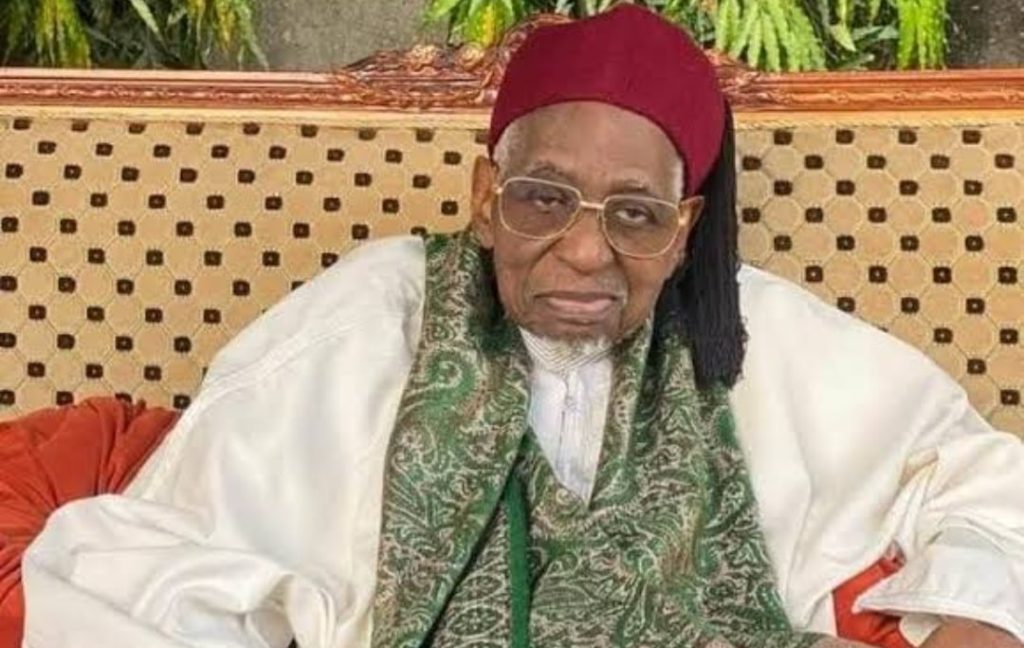In a brazen attack that underscores the persistent security challenges in Nigeria’s northeastern region, suspected Boko Haram terrorists have abducted a professor from the Nigerian Army University in Biu, along with several other passengers traveling on the Damaturu-Biu Road. The incident occurred near Kamuya village in Yobe State on Monday afternoon, sending shockwaves through the academic community and raising concerns about the safety of residents and travelers in the area.
Details of the Abduction
Sources within the Nigerian Army University confirmed that the professor was returning from Maiduguri, where he had visited his family, when the attack took place. The terrorists reportedly ambushed the vehicle he was traveling in, abducting him and other passengers.
A university official, who spoke on condition of anonymity, revealed that the professor was among 30 candidates who had applied for the position of vice-chancellor at the institution. “I am not in a position to disclose this officially, but the news is all over campus. I believe the university’s communication office will issue a statement in due time,” the source said.
Efforts to reach the spokesperson for the Borno State Police Command for comments were unsuccessful, as calls went unanswered. The lack of official statements has left many questions unanswered, including the exact number of people abducted and the current status of the victims.
Resurgence of Terrorist Activities
The abduction is the latest in a series of attacks by Boko Haram and its factions, highlighting the resurgence of terrorist activities in Nigeria’s northeastern region. Despite ongoing military operations aimed at curbing the insurgency, the group continues to launch deadly assaults on communities, security forces, and travelers.
In January, at least six soldiers were killed when suspected Boko Haram militants ambushed troops in Damboa Local Government Area of Borno State. That same month, 20 fishermen were massacred in the Gadan Gari community of Bama LGA, while 40 farmers were killed in Dumba village, Kukawa LGA. Dozens of others were kidnapped across the state.
February also witnessed increased violence, with seven people killed in two separate attacks in Damboa LGA. These incidents have raised concerns about the effectiveness of current security measures and the ability of the government to protect citizens in the region.
Impact on the Academic Community
The abduction of the professor has sent shockwaves through the Nigerian Army University and the broader academic community. The institution, which was established to contribute to national development through education and research, is now grappling with the trauma of losing one of its own to terrorism.
The professor’s abduction also highlights the vulnerability of academics and professionals in conflict zones. Many educators and researchers in the region face significant risks as they carry out their duties, often in areas with limited security presence.
Calls for Improved Security
The deteriorating security situation in northeastern Nigeria has sparked calls for improved measures to protect residents and travelers. Many have criticized the government for failing to address the root causes of the insurgency and for not doing enough to secure vulnerable communities.
Security experts have emphasized the need for a more comprehensive approach to counterterrorism, including intelligence gathering, community engagement, and the provision of adequate resources for security forces. They argue that without addressing the underlying issues that fuel the insurgency, such as poverty, unemployment, and lack of education, the cycle of violence will continue.
The Human Cost of the Insurgency
The abduction of the professor and other passengers is a stark reminder of the human cost of the Boko Haram insurgency. Thousands of people have been killed, abducted, or displaced since the conflict began over a decade ago. Families have been torn apart, and communities have been left in ruins.
For the families of the abducted, the uncertainty and fear are overwhelming. Many are left to wonder whether their loved ones will ever return home. The psychological toll of such incidents is immense, not only for the victims and their families but also for the broader community.
The Role of the Military and Government
The Nigerian military has been engaged in a prolonged battle against Boko Haram, with mixed results. While there have been significant successes, including the recapture of territories once held by the insurgents, the group remains a potent threat.
The government has repeatedly pledged to end the insurgency and restore peace to the region. However, critics argue that more needs to be done to address the root causes of the conflict and to provide adequate support for security forces.
Conclusion
The abduction of the Nigerian Army University professor and other passengers is a tragic reminder of the ongoing security challenges in Nigeria’s northeastern region. Despite efforts to combat Boko Haram, the group continues to launch deadly attacks, leaving a trail of destruction and despair in its wake.
The incident underscores the need for a more comprehensive and sustained approach to counterterrorism, one that addresses both the immediate security threats and the underlying issues that fuel the insurgency. Until then, the people of northeastern Nigeria will continue to live in fear, and the region’s development will remain stymied by violence and instability.
As the nation mourns the loss of lives and prays for the safe return of the abducted, it is imperative that all stakeholders—government, security forces, and the international community—work together to bring an end to the insurgency and restore peace to the region. Only through collective action can we hope to build a future where every Nigerian can live in safety and dignity.













